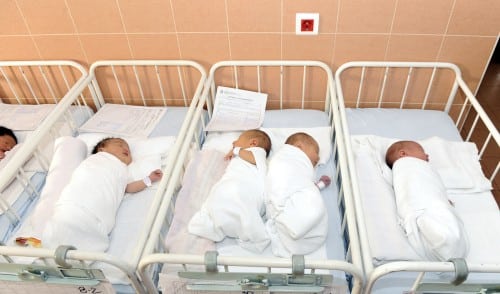A new study from Ben-Gurion University of the Negev and the Soroka University Medical Center recently published in the journal "Child Development" offers insights into reducing the problems associated with premature birth.

Researchers from Ben-Gurion University and the Soroka Medical Center found that a good therapeutic environment in the first months of life can reduce developmental risks associated with premature birth. The research was conducted at the Child and Family Development Research Laboratory led by Dr. Naama Esba-Foria from the Department of Psychology and as part of Dr. Noa Geron-Sela's doctoral thesis (currently in a post-doctorate at the University of North Carolina at Chapel Hill).
11 percent of all births in the world are premature births, or those that occur before the 37th week of pregnancy. Premature birth is the cause of a significant amount of infant deaths and long-term neurological disabilities. That is why various attempts are being made, which include an initiative by the National Institute for Child Health and the Development of the Human Body by Eunice Kennedy Shriver, to reduce elective births before the 39th week of pregnancy.
As mentioned, children born prematurely are at increased risk of developing poor cognitive and social abilities during childhood. Environmental factors, such as parenting, can increase or decrease this risk. The team of researchers includes Dr. Giron-Sela and Dr. Esba Furia, a senior lecturer from Ben-Gurion University and a developmental psychologist at the preschool psychiatric unit in Soroka, Dr. Kayla Marks, director of the premature unit in Soroka, and Dr. Gal Meiri, director of the preschool psychiatric service in Soroka , examined 150 families of babies where two parents have low to moderate income. Half of the babies were born prematurely (34-28 weeks), without significant medical complications, and half of them were born after a full pregnancy. When the babies were six months old, each parent filled out questionnaires assessing emotional stress (symptoms of depression and anxiety alongside parenting stress). The researchers also evaluated the sympathy and affection in the family and their cooperation through video recordings of the interaction between the parents and the babies, while playing together. When the babies reached 12 months of age, the researchers assessed their cognitive and social abilities.
In general, babies born prematurely were more affected by the quality of their caregiving environment than those born after a full-term pregnancy: babies born prematurely and exposed to a high level of emotional stress from their mothers and to strained relationships and not much cooperation in their families, had poorer cognitive and social abilities than Those of babies born after full term pregnancy. However, infants born preterm and exposed to a low level of maternal distress and warm and cooperative family relationships had cognitive abilities similar to those of infants born after full term, and even better social abilities. The mothers' emotional distress and the quality of the family relationship did not affect the cognitive and social development of babies born after a full-term pregnancy.
The infants in this study were not exposed to high-risk social conditions (eg domestic violence, substance abuse or psychiatric disorders). Exposure to such extreme environmental circumstances may harm the development of both groups of children, babies born prematurely and babies born after a full pregnancy. The researchers concluded that babies born prematurely are more affected by their therapeutic environment, in cases where their environment functions normally.
"We found that babies born prematurely are particularly sensitive to both negative and positive effects of parenting on development," explains Dr. Gron-Sela. "While a stressful parenting environment predicted poor developmental abilities, positive caregiving experiences moderated the negative effects of preterm birth on infants' cognitive development and promoted their social communication skills. The research findings provide additional knowledge regarding the effects of medical supervision and treatment given to babies born prematurely. For example, appropriate medical supervision can include monitoring symptoms of emotional distress among the mothers, and can promote positive and cooperative relationships among family members.
